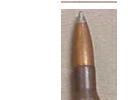CAN I SUE FOR THIS?
Date: Tue, 04/22/2008 - 22:19
Yes it is not hard to put a lein on property regardless of legal
Yes it is not hard to put a lein on property regardless of legality. Have your mother contact a lawyer and have them file the necessary documents to remove the lein and have the court award legal fees so that the CA has to pay the bill.
I am having the above deleted and requesting that the poster be
I am having the above deleted and requesting that the poster be blocked for malicious statements. Do not respond to this sub human.
That is completely illegal and you can sue for it. Get your moth
That is completely illegal and you can sue for it. Get your mother a good aggressive attorney and go after them for punitive damages as well.
aww darn, I wanted to see what sort of vileness spouted out of N
aww darn, I wanted to see what sort of vileness spouted out of NNC.
BTW: It is totally illegal to do that, as a lawyer he should have known better. Have your mom put the legal screws to him.
yes, this is illegal. Was it Pacific States Credit Company (own
yes, this is illegal. Was it Pacific States Credit Company (owner Jeff McCoon)? He just had a $500,000 bench warrant issued for his arrest for this exact same practice (illegal property liens on 113 homes). You'll probably have to get a judge to remove the lien.
I find it odd that the word "Lien" is so freely thrown around by
I find it odd that the word "Lien" is so freely thrown around by people who most likely dont know what the word means in the first place. For instance, in the McCoon matter, you might be surprised to learn that McCoon, the courts and the authors of the Uniform Commercial Code do NOT believe that a UCC 1 financing statement is a "lien". In fact in reviewing McCoon and his practices I discovered that some 86 civil court rulings found in his favor on the question of his business practices.
Guest, Aside from the fact you bumped a thread that was sever
Guest,
Aside from the fact you bumped a thread that was several months old, you do address this situation in a differing POV; however, I was not at all sure what you are referring to by UCC-1. So, in my endless quest to try and make things simple to understand or "put them in lay-man's terms", I did a quick Google of the term "UCC-1".
What I interpret the term UCC-1 to mean, after I read all the differing definitions, is this: a lien placed on the assets, or property, owned by a BUSINESS. Not someone's personal property. Please correct me if I'm not at all correct in my interpretation.
So applying this to the OP's original question, the attorney in question seems, to me at least, would be incorrect in using the UCC-1 to place a lien against his mother's house, as I'm fairly certain it is not a place of business. Continuing, if you reviewed the records and found Mr. McCoon had used this UCC-1 against businesses and not private residences, then his actions were correct.
I don't think it was established, however, that Mr. McCoon was the attorney in question in the OP's question. Someone asked the questions; however, I don't think it was ever answered at all as to who the attorney was. Additionally, it was pointed out that his mother should have no obligation whatsoever to the OP's debt, therefore, the lien should not have been placed on her property at all. It was also pointed out, practically anyone can place a lien on someone else's property, with or without winning any kind of judgment against them. This is also, sadly, correct. The person that does place such a "bogus" lien needs to be held accountable for such an action, though, and pay the victim's fees and court costs (if any) in order to get this bogus lien removed.





